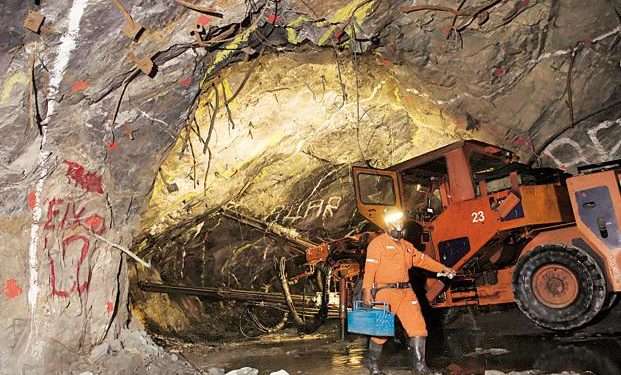Ghana has long been known for its extractive sector, which has been a major contributor to the country’s export earnings. However, recent comments made by Joe Jackson, the Director of Operations at Dalex Finance, have highlighted a worrying trend. According to Jackson, for every $100 worth of exports made, Ghana earns only $15 as income or revenue.
Jackson was speaking during a Twitter Space Conversation held on Sunday, April 23, 2023, with the theme “The Current Economic Crisis: Is There Any Silver Lining; What is Ghana Missing?”. He noted that the extractive sector is dominated by foreign businesses, and unlike in Nigeria, where most of the businesses in the extractive sector are owned by Nigerians, Ghanaian businesses are not the major players in the sector.
The low retention of revenue from the extractive sector is a concern for Ghana’s economy. Under Ghanaian law, every business operating in the extractive sector is required to cede 10% of the business to the government in addition to paying taxes and mineral royalties. However, with most of the businesses in the sector owned by foreigners, Ghana is only able to retain a small percentage of the revenue generated from the sector.
The issue of low retention of revenue from the extractive sector is not unique to Ghana. Many resource-rich countries have struggled with the same problem. However, the lack of local ownership of businesses in the extractive sector in Ghana is particularly concerning. This is because the sector is a major contributor to the country’s economy, and without greater local ownership of businesses, the country may struggle to benefit fully from its natural resources.
The government must take steps to address this issue and promote greater local ownership of businesses in the extractive sector. One possible solution is to provide incentives for local businesses to invest in the sector. For example, the government could provide tax breaks or subsidies to businesses that are majority-owned by Ghanaians. Another solution is to create a more favorable investment climate for local businesses. This could be achieved through the development of infrastructure, such as roads and power plants, and the improvement of the legal and regulatory framework.
It is important to note that the extractive sector is not the only sector where Ghana faces challenges. The country’s economy has been hit hard by the COVID-19 pandemic, with many businesses struggling to survive. In addition, the country faces other economic challenges, including import dependency and inefficient tax handles, which need to be addressed.
However, as noted by Dr Priscilla Twumasi Baffour, a Senior Lecturer at the Economics Department of the University of Ghana, the current economic challenges facing the country present an opportunity for the country to reset the structure of its economy for sustained growth and development. This includes addressing the challenges facing the extractive sector and promoting greater local ownership of businesses in the sector.
Ghana’s extractive sector has been a major contributor to the country’s economy, but the lack of local ownership of businesses in the sector means that the country is not benefiting fully from its natural resources. The government must take steps to promote greater local ownership of businesses in the sector and create a more favorable investment climate for local businesses. Doing so will not only help to address the challenges facing the extractive sector but will also contribute to sustained economic growth and development in the country.
Source: Norvanreports

